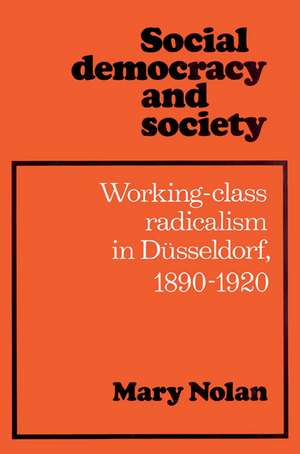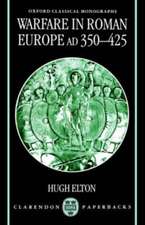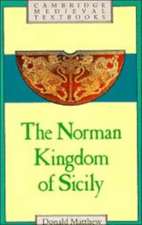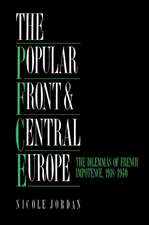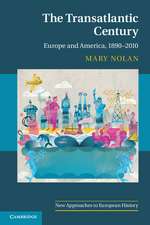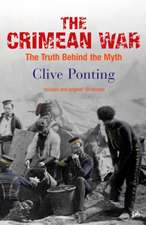Social Democracy and Society: Working Class Radicalism in Düsseldorf, 1890–1920
Autor Mary Nolanen Limba Engleză Paperback – 12 noi 2003
Preț: 321.88 lei
Nou
Puncte Express: 483
Preț estimativ în valută:
61.65€ • 63.51$ • 51.64£
61.65€ • 63.51$ • 51.64£
Carte tipărită la comandă
Livrare economică 24 februarie-10 martie
Preluare comenzi: 021 569.72.76
Specificații
ISBN-13: 9780521524681
ISBN-10: 0521524687
Pagini: 392
Ilustrații: black & white illustrations
Dimensiuni: 152 x 229 x 22 mm
Greutate: 0.57 kg
Ediția:Revised
Editura: Cambridge University Press
Colecția Cambridge University Press
Locul publicării:New York, United States
ISBN-10: 0521524687
Pagini: 392
Ilustrații: black & white illustrations
Dimensiuni: 152 x 229 x 22 mm
Greutate: 0.57 kg
Ediția:Revised
Editura: Cambridge University Press
Colecția Cambridge University Press
Locul publicării:New York, United States
Cuprins
Preface; Introduction; Part I. The Era of Frustration: 1890–1903: 1. The hostile environment: Düsseldorf in the 1890s; 2. Social democracy and political Catholicism; 3. A false start; 4. Ideological unity and organizational disarray; Part II. Ambiguous Success and Radicalization: 1903–1912: 5. Skilled migrants, peasant workers, and native Catholics; 6. Party building and popular culture; 7. Expansion and optimism; 8. Move to the left; 9. The limits of reformism; Part III. Radicals Become Revolutionaries: 1912–1920: 10. Things fall apart; 11. War; 12. Revolution; Conclusion; Appendix; Notes; Bibliography; Index.
Descriere
A case-study of the origins of working-class radicalism in Imperial Germany.
